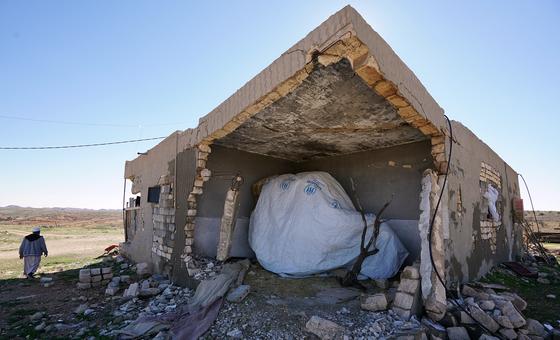The Daily Observer London Desk: Reporter- James Richards
“There has been a new dynamic in Libya,” Abdoulaye Bathily said, urging authorities to meet the people’s expectation that they will be able to choose new leaders via the ballot box, and deliver on all their commitments. “All international partners should support the current momentum and speak with one voice on Libyan matters.”
“Intensive consultations have taken place amongst security actors; institutional and political leaders have also taken action to move the political process forward,” he said, providing a snapshot of developments since he last briefed the Council in February.
Indeed, the international community should remain mobilized and vigilant to further enable the activity of Libya’s institutions and political actors towards elections, the Special Representative said.
Tense security landscape
While the overall security situation remains tense, the ceasefire continues to hold and there were positive developments on cooperation between the Libyan Army under the control of the internationally-recognized Government and the rival Libyan National Army, and on the withdrawal of foreign fighters and mercenaries, said Mr. Bathily, who also heads the UN mission in Libya (UNSMIL).
On the issue of the return of foreign fighters and mercenaries from Libya, the Special Representative travelled to Chad, Niger, and Sudan to discuss with leaders there, how best to improve conditions to make that happen.
“The withdrawal of foreign fighters should be conducted in a coordinated, sequenced and synchronised manner to ensure that they do not become a threat to the security of their home countries,” he said, adding that the process should also contribute to combatting terrorism, illegal gold mining, human and drug trafficking and all forms of criminality affecting border areas.
Outlining progress on a number of other fronts, he said the active mobilization of all those with a vested interest in the political future, including the Presidential Council, the Government, the House of Representatives and the High State Council, is key to achieving consensus on political matters, security issues as well as questions pertaining to the participation of women and youth.
Human rights restrictions
During the reporting period, civic space was further restricted, and operations of civil society organizations deemed illegal, he said.
Pointing to recent human rights reports recommending further efforts to combat impunity, he urged Libyan authorities to rise to their obligations, ensure accountability, and provide more space for the action of civil society organizations.
‘Unique opportunity’
Turning to the electoral process, he said it offers a unique opportunity to mobilize the entire country to ensure peaceful, inclusive, free, and fair elections.
In this vein, he said he engaged key Libyan political leaders through “shuttle diplomacy” to seek common ground and encourage them to make compromises that will “clear a path to elections”.
“They all expressed their readiness to discuss the parameters of the organization of elections,” he said, welcoming their commitment and calling for the translation of their engagement into concrete steps on the ground. “This action will continue and intensify as relevant actors will need to negotiate and agree on the most contentious issues pertaining to the holding of inclusive elections this year.”
Confidence-building gains
For purposes of promoting national solidarity, furthering national reconciliation, strengthening the ceasefire, and mobilizing all armed actors for election security, the Special Representative said he has facilitated the 5+5 Joint Military Commission’s engagement with Libyan security and military actors, including other armed groups from the country’s three regions.
“These meetings were of great symbolic value on the path to reconciling and unifying the country,” he said, urge political actors to follow the example set by military and security leaders. “As a result, on 8 April, Libyan National Army authorities released six detainees from western Libya as a confidence-building measure.”
‘Peaceful competition of visions’
Several rounds of consultations in Tripoli, Benghazi, and Sebha, with Libyans representing civil society, women, youth, and political parties, had amplified their views on elections and demands for greater inclusion, he said.
“It is vital for the success of elections that all parts of Libyan society are involved and have their voices heard, and that the electoral campaign provides an opportunity for a peaceful competition of visions and programmes and not an occasion that triggers hate speech and violence,” he said.
UNSMIL provided technical expertise for preparing election laws alongside support to the “6+6 Committee” of the House of Representatives and High State Council, he said, urging leaders of both chambers to expedite efforts and publish a timebound work programme.
Intensifying mediation
For its part, he said, UNSMIL will intensify its facilitation and mediation, through the multiple, interdependent, and mutually reinforcing axes of the mission’s comprehensive approach, to support the realization of all political, legal, and security requirements so elections can go ahead, later this year.



